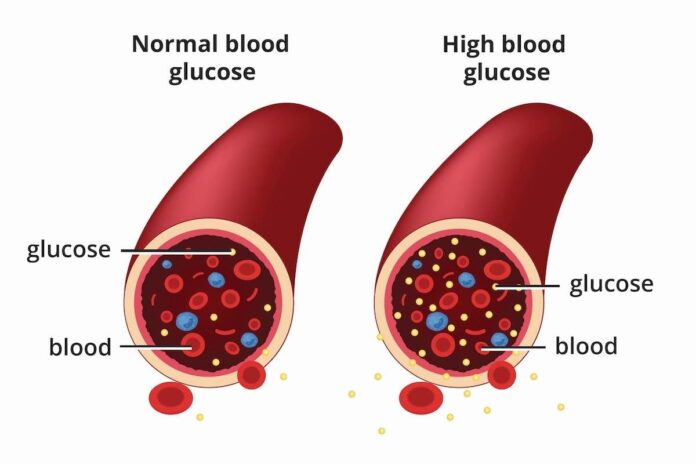
Understanding the Importance of the A1C Blood Test in Diabetes Management
Diabetes is a chronic condition that affects millions of people worldwide. It occurs when the body is unable to properly regulate glucose levels in the blood, leading to high blood sugar. There are two main types of diabetes – type 1 and type 2. Type 1 diabetes is an autoimmune condition in which the pancreas does not produce enough insulin, while type 2 diabetes occurs when the body becomes resistant to insulin.
One of the key tools in managing diabetes is the A1C blood test. This test measures the average level of blood sugar over the past two to three months and is an important tool in determining how well a person’s diabetes is being managed. Understanding the importance of the A1C blood test can help individuals with diabetes take control of their condition and prevent potential complications.
What is the A1C Blood Test?
The A1C blood test, also known as the hemoglobin A1C test, measures the percentage of hemoglobin in the blood that has glucose attached to it. Hemoglobin is a protein found in red blood cells that carries oxygen from the lungs to the rest of the body. When glucose levels are high in the blood, some of it attaches to the hemoglobin, forming a substance known as glycated hemoglobin.
The A1C test provides a snapshot of a person’s average blood sugar levels over the past two to three months. This is because red blood cells live for about three months, so the A1C test reflects the average blood sugar levels during that time period. The results of the A1C test are given as a percentage, with lower percentages indicating better blood sugar control.
Why is the A1C Blood Test Important in Diabetes Management?
The A1C blood test is an essential tool in managing diabetes for several reasons:
1. Monitoring Blood Sugar Levels: The A1C test provides an accurate measure of how well blood sugar levels are being managed over time. It gives healthcare providers and individuals with diabetes a better understanding of how their treatment plan is working and whether adjustments are needed.
2. Preventing Complications: High blood sugar levels over time can lead to complications such as heart disease, kidney disease, nerve damage, and vision problems. By monitoring the A1C levels regularly, healthcare providers can help prevent these complications by adjusting treatment plans as needed.
3. Setting Treatment Goals: The A1C test is used to set treatment goals for individuals with diabetes. The American Diabetes Association recommends an A1C goal of less than 7% for most adults with diabetes. However, individual goals may vary depending on factors such as age, overall health, and the presence of other medical conditions.
4. Motivating Behavior Change: Seeing the results of the A1C test can also motivate individuals with diabetes to make positive changes in their lifestyle, such as following a healthy diet, exercising regularly, and taking medications as prescribed. By improving blood sugar control, individuals can decrease their risk of complications and improve their overall quality of life.
5. Personalizing Treatment Plans: The A1C test helps healthcare providers personalize treatment plans for individuals with diabetes. By understanding a person’s average blood sugar levels over time, healthcare providers can tailor treatment plans to meet individual needs and goals.
How Often Should the A1C Blood Test be Done?
The frequency of A1C testing varies depending on a person’s individual situation. For most people with diabetes, the A1C test should be done at least twice a year. However, individuals with poor blood sugar control or those on new medications may need to be tested more frequently. It is important to follow the recommendations of a healthcare provider regarding how often to have the A1C test done.
How to Prepare for the A1C Blood Test?
There is no special preparation needed for the A1C blood test. It can be done at any time of the day and does not require fasting. However, it is important to inform the healthcare provider about any medications being taken, as some medications can affect the results of the test. It is also important to follow any instructions given by the healthcare provider regarding diet, exercise, and medication before the test.
Interpreting A1C Results
The results of the A1C test are given as a percentage, with lower percentages indicating better blood sugar control. The American Diabetes Association provides the following general guidelines for interpreting A1C results:
– A1C below 5.7% is considered normal
– A1C between 5.7% and 6.4% indicates prediabetes
– A1C of 6.5% or higher indicates diabetes
It is important to discuss the results of the A1C test with a healthcare provider to determine the best course of action. Based on the results, adjustments may be needed to the treatment plan, including changes in diet, medication, or exercise.
In conclusion, the A1C blood test is a valuable tool in managing diabetes. By providing an accurate measure of average blood sugar levels over time, the A1C test helps healthcare providers and individuals with diabetes track how well the condition is being managed. Monitoring A1C levels regularly, setting treatment goals, and personalizing treatment plans are essential steps in preventing complications and improving quality of life for individuals with diabetes. Understanding the importance of the A1C blood test can empower individuals with diabetes to take control of their condition and make positive changes in their lifestyle.












